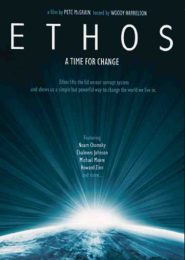The Power of Nightmares (2004)
The Power of Nightmares: The Rise of the Politics of Fear is a BBC documentary series directed by Adam Curtis, which aired in 2004. The series explores the origins and rise of the neoconservative movement in the United States and the radical Islamist movement, particularly focusing on the similarities between these two groups despite their seemingly contrasting ideologies.
The documentary is divided into three parts, each delving into the historical and ideological evolution of these movements. The first part, titled “Baby It’s Cold Outside,” traces the roots of Islamism to Sayyid Qutb, an Egyptian civil servant who, after a visit to the U.S., becomes disillusioned with Western society’s moral corruption. His experiences lead him to believe that only a revolution based on Islamic law can save society, a vision he thinks can be realized through an elite vanguard leading a revolt against the established order.
Qutb’s ideas influence Ayman al-Zawahiri, who later mentors Osama bin Laden. The documentary illustrates how the failure of Zawahiri’s revolution in Egypt leads him to view Muslims influenced by Western ideas as corrupted, legitimizing violence against them if they refuse to join his cause.
Parallelly, the series examines the rise of neoconservatism in the U.S., highlighting figures such as William Kristol and depicting the movement’s quest for a new role in politics after the perceived failure of optimistic visions and ideologies. The neoconservatives seek to restore their power and authority by promoting the idea of a hidden and organized terrorist network, which Curtis argues is an illusion—a myth that has been unquestioned in politics, security services, and the international media.
Controversially, Curtis suggests that the notion of radical Islamism, specifically al-Qaeda, as a massive, sinister organization, is a noble lie used by leaders, especially U.S. neoconservatives, to unite and inspire their people following the ultimate failure of utopian ideas.
The Power of Nightmares received critical acclaim for its insightful analysis and was also subject to various critiques from different political spectrums. The documentary challenges viewers to question the narratives fed by political leaders and to consider the impact of fear on governance and society. It stands as a significant work that dissects the politics of fear and its use in shaping contemporary global events.




